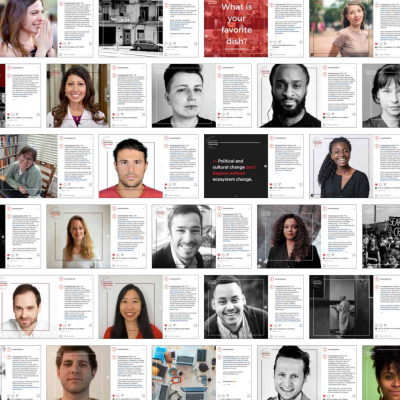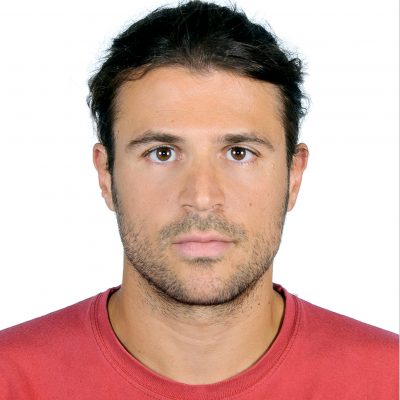Article
Landecker Democracy Fellow Vincent Kadiri is a Nigerian German scientist currently pursuing his doctorate at the Max Planck Institute for Intelligent Systems in Stuttgart, Germany.
In light of current challenges such as COVID-19, the climate crisis, populism, and automation, it is crucial that STEM (science, technology, engineering, and mathematics) fields become more resistant to misinformation, political extremism, and lobbying. It is imperative that scientists realize just how political their work is, in order to prevent the worst aspects of research and engineering, which are typically portrayed as objective, coming to the forefront. For example, certain algorithms designed exclusively by white men have been shown to negatively affect womxn and BIPoC.
The goal of this project is to start addressing these issues by rallying BIPoC scientists around better science communication and eventually decolonizing STEM.
[perfectpullquote align=”left” bordertop=”false” cite=”” link=”” color=”” class=”” size=””]It is crucial that STEM (science, technology, engineering, and mathematics) fields become more resistant to misinformation, political extremism, and lobbying.[/perfectpullquote]
White French scientists calling to “test vaccines in Africa” in the face of COVID-19 illustrates that decolonization in the natural sciences is still and increasingly relevant. This pandemic demonstrates the need for diversifying but more importantly for changing scientific culture. A vaccine, of course, needs to be tested globally to ensure efficacy. There could, however, have been a greater emphasis on testing vaccines in collaboration with African scientists rather than continuing to portay and perpetuate colonial dynamics of Europeans experimenting on Africans.
[perfectpullquote align=”right” bordertop=”false” cite=”” link=”” color=”” class=”” size=””]Unconscious biases in academia lead to scientific data gaps that have been pointed out long before COVID-19. Gender-disaggregated and/or BIPOC-inclusive data are still not commonplace in many scientific studies. Many genetic studies, for instance, only focus on subjects of white European descent[/perfectpullquote]
Unconscious biases in academia lead to scientific data gaps that have been pointed out long before COVID-19. Gender-disaggregated and/or BIPOC-inclusive data are still not commonplace in many scientific studies. Many genetic studies, for instance, only focus on subjects of white European descent. Similarly, some malaria medications intended for Global South populations were bizarrely tested on mostly white males. As were contraceptive pills for womxn, as Caroline Criado Perez points out in “Invisible Women”. That these studies were not only conducted, but written, peer-reviewed and accepted without questioning their validity speaks volumes about STEM fields‘ need for reform.
So, how can we hope to decolonize, feminize*, and ultimately democratize science? By leveraging his own experiences as an activist and Afro-European scientist, Vincent wants to establish a grassroots network of BIPOC scientists Na’egbia Iyese (Etsako, =„Good morning knowlegde“) that focuses on improving science communication and lobbying for equity within the sciences. A major component of this initiative will be youth-focused outreach through “science slams“, media content in order to showcase existing diversity and inspire communities, especially Youth of Color. Vincent is currently based in Germany, which is where most of the early events will take place. However, academia is a global community. Ideally, this project will grow into a global network to address and lobby against historical socio-political injustices in the scientific community.
[perfectpullquote align=”right” bordertop=”false” cite=”” link=”” color=”” class=”” size=””]Vincent wants to establish a grassroots network of BIPOC scientists that focuses on improving communication and ensuring more equity within the sciences.[/perfectpullquote]
The focus on science communication serves three functions: It avoids „diversification“ as Na’egbia Iyese‘s focus while simultaneously helping to topple the often intimidating scientific ivory tower. Finally, participants would become more comfortable speaking publicly, leading to more exposure (via science slams & classroom visits). BIPOC children, especially girls*, need to be able to see themselves in positions of knowledge and power. Vincent is confident this project will produce positive role models that can promote change in the sciences and within society.
To learn more about Vincent’s project, visit his project website here.




